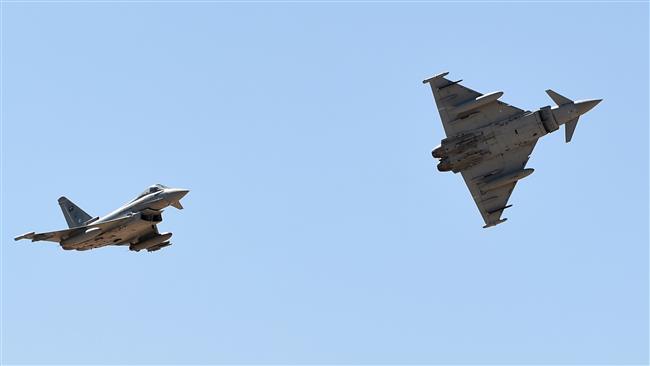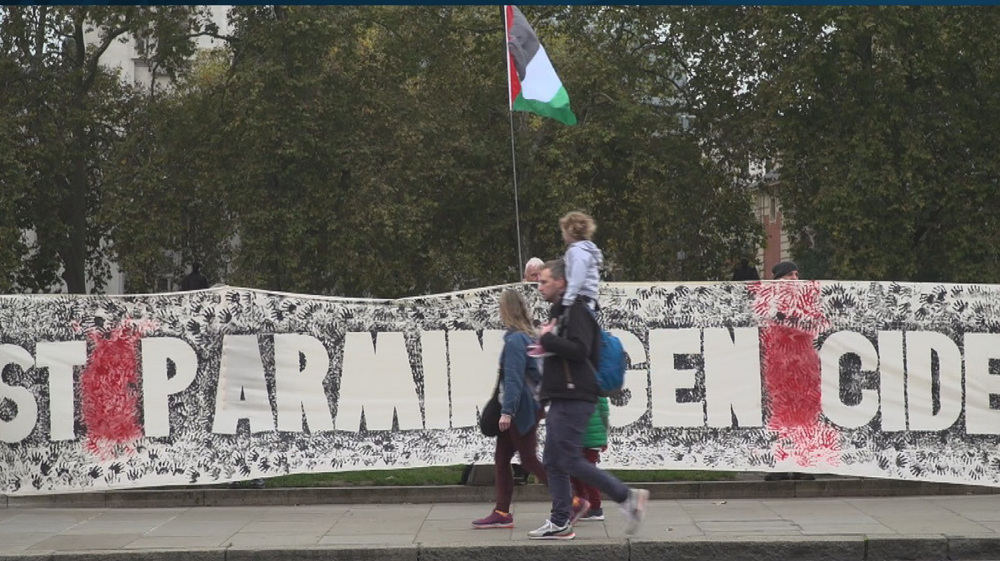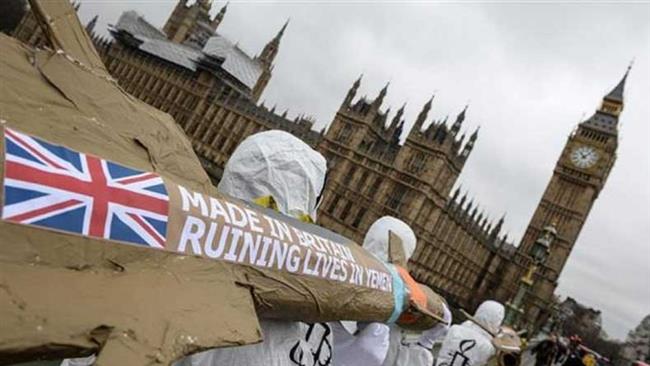Halting weapons sales to Saudi risks political issues: UK
The UK government says it can’t halt its weapons sales to Saudi Arabia because of “serious political ramifications.”
Government lawyer James Eadie made the remarks on Wednesday, as the UK High Court’s judicial review of London’s extensive arms deals with Riyadh entered its second day.
Led by the Campaign Against Arms Trade (CAAT), British activists have brought the case to the court, accusing May’s government of complicity in Riyadh’s war crimes against Yemen.
Britain has signed off £3.3 billion in arms sales to Saudi Arabia since March 26, 2015, when the Saudi began its deadly military aggression against Yemen, killing over 11,000 Yemeni civilians.
Denying CAAT’s charges, Eadie argued that the government should not prevent weapons manufacturers from following their business interests.

“If you refuse to allow exports you interfere with the interests – if not rights – of those who wish to export their goods,” Eadie said. Such measures would also “create some risk that you may affect diplomatic relations with that country.”
He further argued that the government of Prime Minister Theresa May should not have to “set themselves up as auditors of armed conflict by friendly governments” and decide whether the weapons that are being sold would be used in conflict.
London, which has been one of the biggest suppliers of weapons to Riyadh for 40 years, has provided Tornado and Eurofighter Typhoon jets along with training to Saudi pilots participating in the war, which has killed thousands of Yemeni civilians.
The British government has also admitted to exporting 500 illegal cluster bombs to Saudi Arabia in the 1980s which the country used in its war on Yemen.
In November, the government rejected calls by two parliamentary committees and human rights groups to stop selling arms to Saudi Arabia, arguing that the weapons were not being used in “a serious violation of International Humanitarian Law (IHL).”
Read More:
According to evidence presented by CAAT to the court on Tuesday, the government has ignored concerns about the issue within its own ranks.
“To be honest, and I was very direct and honest with the secretary of state, my gut tells me we should suspend [weapons exports to the country],”Edward Bell, head of the UK Export Control Organization, wrote in an email to then business secretary Sajid Javid in February 2016.
The remaining one-and-a-half days of the three-day hearing will be held in private to the nature of the sensitive evidence.
UNRWA warns of humanitarian collapse in Gaza
'Hello my enemies': Lebanese journalist on Israeli threats and his resolve to continue
Outrage in France as MP proposes bill to ban criticism of Israel
VIDEO | The strategy of Hezbollah in war
Israeli military withdraws several brigades from southern Lebanon: Report
48-year-old Palestinian man serving 48 life terms completes 22 years in Israeli jails
From MKO to Tondar, how Germany became safe haven for anti-Iran terror groups
Hamas open to any proposal aiming to end Gaza war: Hamdan















 This makes it easy to access the Press TV website
This makes it easy to access the Press TV website